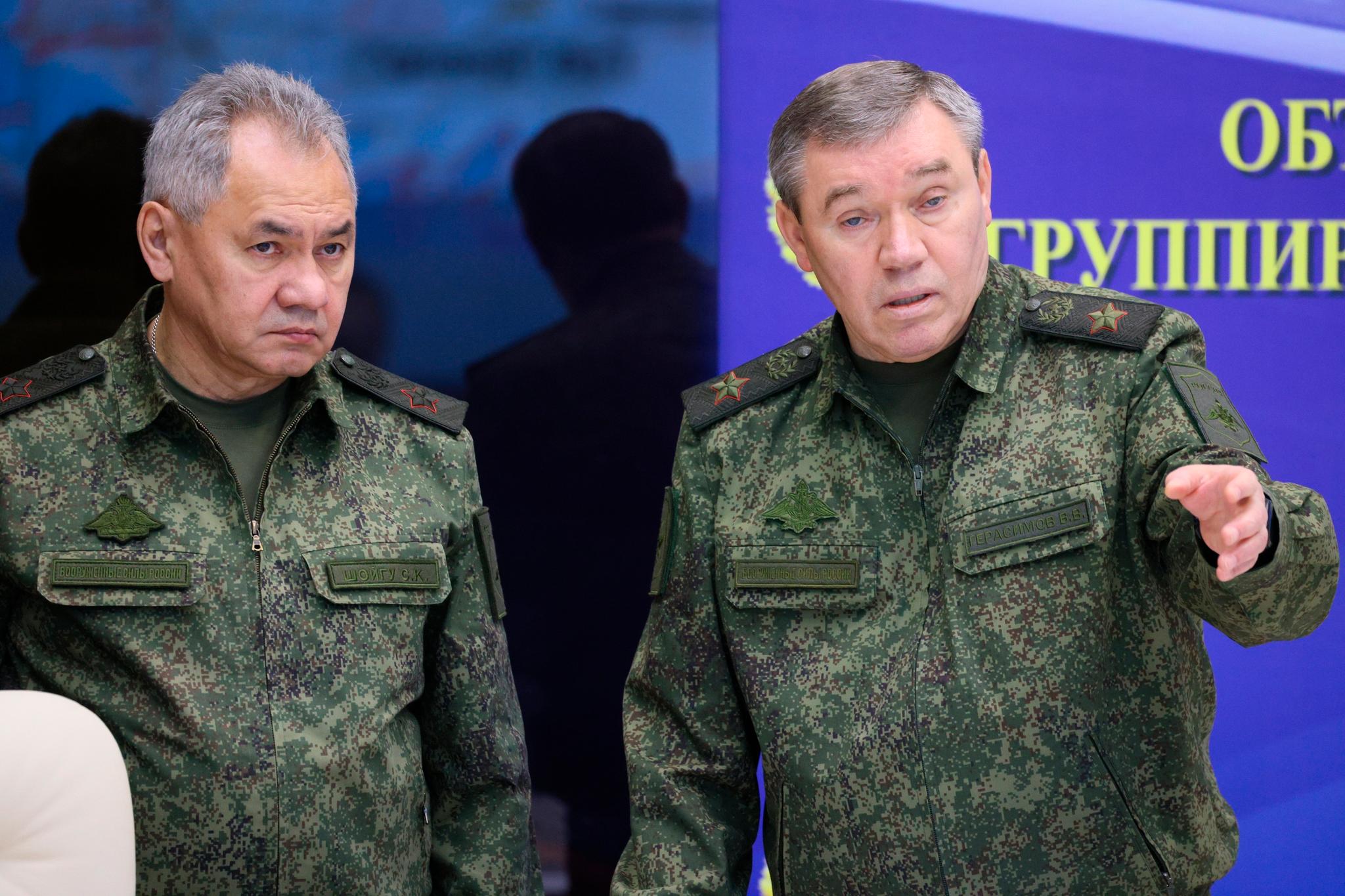Valery Gerasimov was to ensure Russian winter success. At the same time, soldiers drank themselves to death.
On January 11, Valery Gerasimov was singled out to lead the Russian invasion of Ukraine. From before, he was chief of defense. This winter he was to take over the direct management of the warfare.
It also meant that Gerasimov gained control of Russia’s winter offensive. The goal was to take the Donbas region by March 31.
Now the winter offensive is labeled a failure.
Wasted an advantage
At least this is the verdict from British intelligence.
As Aftenposten has previously told, the Russian tactic has, among other things, consisted of sending “attack detachments” with foot soldiers to the front.
The purpose has been for them to reveal Ukrainian positions. Then Russian artillery was to bombard them.

also read
This is where the Russian soldiers die. Why do they voluntarily run to the slaughterhouse?
But after 80 days, only marginal progress has been made in the region. The fighting around Bakhmut and Lysytjansk is still going on.
According to the think tank Institute for the Study of War (ISW), Russian military experts are frustrated. The winter did not bring decisive blows.
Government officials are advocating that Russia now focus on defensive positions. They are preparing for a Ukrainian counteroffensive next month, according to ISW.
Tens of thousands of Russian soldiers are said to have died this winter. The advantage Russia had in being able to mobilize 300,000 soldiers this autumn has largely been wasted, according to British intelligence.
Drinking himself to death
Ukrainian authorities report that around 175,000 Russian soldiers have been deployed since the start of the war, but the figure is uncertain.
A small, but not insignificant, proportion must have lost their lives for reasons that have nothing to do with combat.
British intelligence quotes a Russian news channel as saying that high consumption of alcohol has led to deaths, accidents and crime within the Russian forces.
They believe it is likely that military leaders in Russia see alcohol as inhibiting. At the same time, alcohol has been accepted as part of the culture – also in the armed forces.
In addition, there are deaths linked to poor weapon handling, traffic accidents and frostbite.
It is now being speculated whether Russia, as a result of the failed winter offensive, will make new changes in the leadership in the future.

